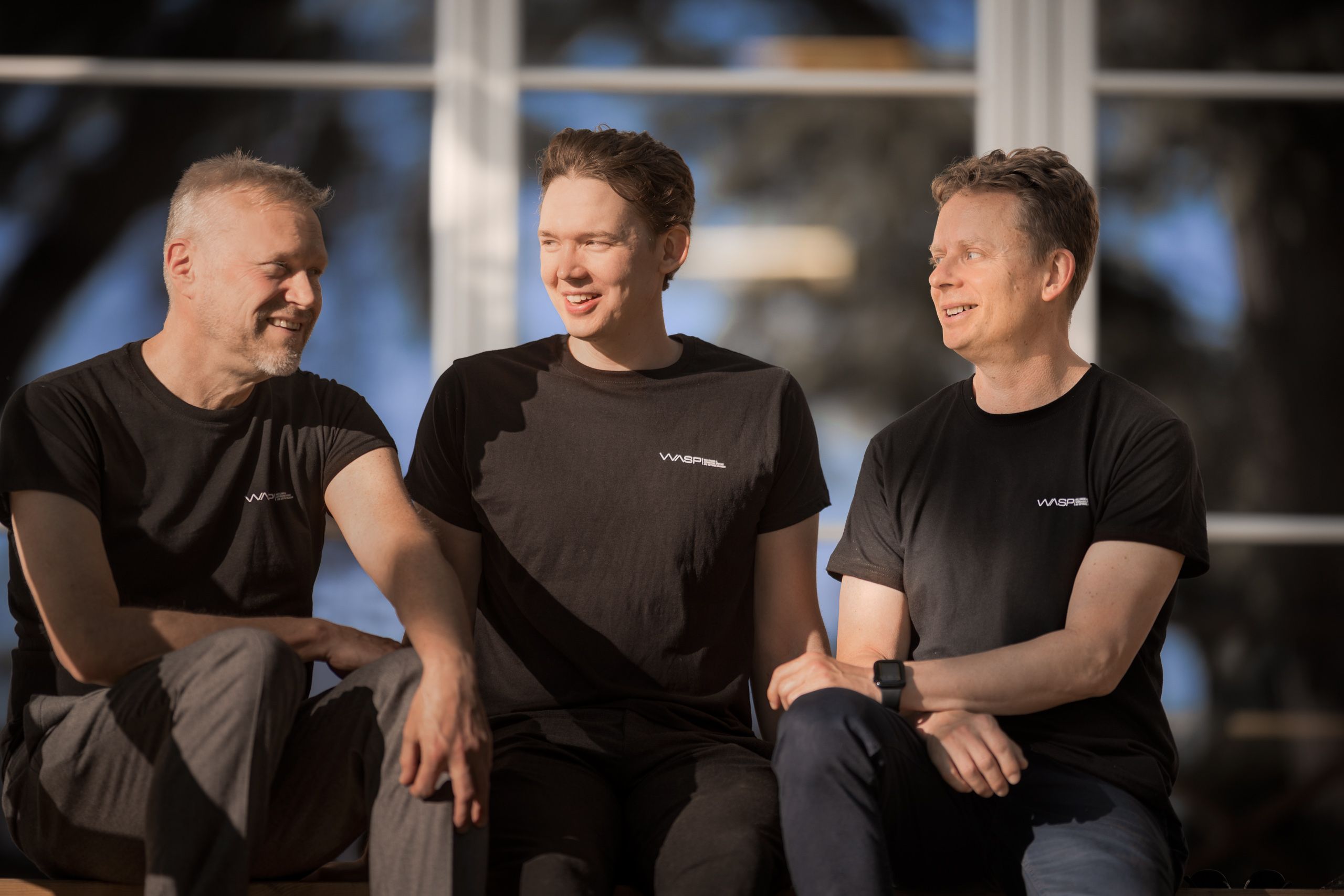Jonas Lundberg & Magnus Bång
Engaging with WARA-PS: Insights from the Experts
Over a hundred researchers and experts convened to engage in intensive networking, collaborative endeavors, and data collection as WARA-PS marked its seventh anniversary. This milestone event provided a unique forum for dialogue and discovery, prompting discussions with two leading professors about their motivations for participating in the WARA-PS initiative.
At the picturesque Gränsö Castle near Västervik, where drones buzz and mini-boats slice through the water, researchers and experts marked the seventh anniversary of the WARA-PS initiative. Amidst the field tests and buzzing activity, professor Jonas Lundberg and senior associate professor Magnus Bång— at ITN, Department of Science and Technology at Linköping University, respectively—shared insights into their longstanding involvement with WARA-PS and the unique opportunities it offers.
Reflecting on the origins of their participation, Professor Lundberg recalls the initial allure of WARA-PS: “What could happen if we contributed our perspective?” This question has since unfolded into a decade of active engagement with the platform, and guided projects such as UTM City, ASSIST, and Virtual Demo.
Unique testbed
“We quickly realized the benefits of being here,” Lundberg continues. “The environment provides an excellent testing ground with a mix of human and autonomous operators. WARA-PS offers an unparalleled testbed in Sweden.”
Magnus Bång, an associate professor at the Department of Computer Science at Linköping University, appreciates how the platform facilitates maintaining industry connections.
“For our research to be effective, we need real scenarios and tangible problems to test. Here, research challenges become clearer as we observe industry practices from multiple perspectives, helping us understand what’s currently feasible to study,” explains Magnus.
Open climate for collaboration
Throughout the five-day Data Collection Week, researchers and experts from universities, government agencies, startups, and major corporations like SAAB and Ericsson came together to discuss ideas, code, and share insights over coffee from large pump thermoses.
“Everyone is accessible, making it simple to coordinate, discuss ideas, and keep tabs on each other’s projects. It’s an open climate for collaboration, driving progress forward.” Jonas adds.
In a university world where research projects can change rapidly, both professors appreciate that WARA-PS provides a form of long-term stability.
“WARA-PS smooths out the bumps in an otherwise project-timeframe-driven work environment, offering a recurring context that we can rely on annually,” Jonas states.
Mentoring a WASP student
This year is particularly special as they mentor a doctoral student funded through WASP for the first time at Gränsö. “It started when we were here discussing with Kockums and developed the idea for a doctoral project now called PACE,” mentions Jonas.
PACE focuses on modeling time and timing in Human-AI collaboration, led by Gustaf Söderholm, a PhD student from Linköping University.
“PACE explores the temporal processes between humans and machines. Many automation challenges stem from differing rhythms between technology and humans. We need to ensure humans can integrate with AI in decision-making effectively,” Magnus elaborates.
Not alone
Reflecting on his own doctoral experience, Magnus finds value in belonging to a research program.
“It’s great for PhD students to code together and network, as it mitigates the isolation often felt in doctoral studies,” he says.
This week, numerous new and experienced doctoral candidates from universities across Sweden have gathered. Some are attending the WARA-PS Onboarding school, where they familiarize themselves with the research arena and available technical resources. Meanwhile, Gustaf is busy working with experts from Kockums, studying how the mini-boats navigate the waters.
“We are especially happy to see several new faces here, interacting with us and our PhD students – we hope that this will result in more projects and new collaborations between PhD students on human-AI collaboration in both WASP and WASP-HS” says Jonas.
“Meeting other doctoral students, even a few times a year, significantly reduces loneliness and fosters a sense of community. Here, they also get a chance to conduct empirical work and collect real-world data, which is incredibly rewarding,” concludes Magnus

